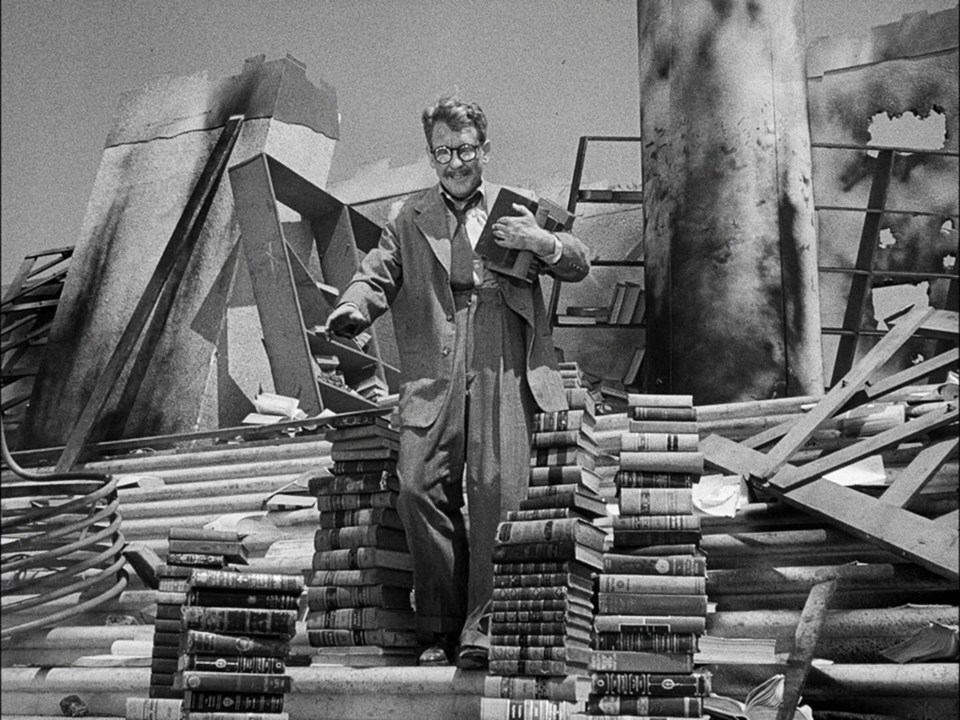Eighty boxes of books. That’s what I carted from one residence to another in a recent move. This was after culling hundreds of books: selling some at second-hand bookstores and abandoning others, like orphans, at nearby recreation centres.
In this and past moves I’ve tried to whittle down my collection beforehand, yet it still keeps expanding, like some Japanese sci-fi monster that balloons under an onslaught of ammo. Perhaps it would be a good idea for me to read the books I already own before buying more… or at least use my library card more often, as an antidote to hoarding.
“Why don’t you get a Kindle?” people invariably ask me. The device can hold up to 3,500 books, I’ve learned. So I could easily fit a book collection of my size onto one Kindle, and free myself of digital age deadweight — but at what cost to reacquire the books in electronic versions?
Here’s the thing. Some long-out-of-print titles are still unavailable in digital format. They may never see the light of “paperwhite.” Among them are the kinds of books I’m fond of: the obscure, the strange, the subversive.
I’m also not entirely confident that the infinitely copyable nature of digital media is a total safeguard against either Big Brother or Big Bother. For example, controversy erupted in 2009 when Amazon customers discovered that a particular title had disappeared right off their Kindles. The title, ironically enough, was George Orwell’s 1984. Jeff Bezos’s behemoth deleted the book without warning when the publisher backtracked on offering an electronic edition.
This anecdote stands as a singular data point, highlighting the “Cloud” hanging over digital media.
Print-bound books can be burned or pulped, but it takes effort to locate every last copy of a given title. In contrast, networked digital files can be ferreted out and disappeared en masse at the press of a key.
Just one more reason to hang on to lots of hard-copy books, insists the excuse-hungry mind of the bibliomaniac.
Then there’s the ephemeral nature of binary information. Formats change, and electromagnetically stored data can be corrupted in a matter of years. Ask anyone who’s ever kept and lost valuable files on floppy discs.
One more thing about the Cloud. Like anyone else, the Internet and mobility has seriously cut into my book reading. I’ve trained my brain to expect a tiny dose of dopamine every time my cellphone beeps or the email icon lights up on my tablet. And God (or Google) only knows how much Buzzfeed-style listicles have crippled my attention span.
An old-timey print volume will never tempt me with clickbait items like “You’ll Never Believe What these ’80s TV Hotties Look Like Now.” That’s what makes a thick volume seem intimidating: its demands on your attention. I’m old enough to remember when getting or giving a book as a gift — particularly in hardcover — was a big deal. Now it’s more like a dare. “When do you expect me to read this? For Cripes sake, couldn’t you have got me something I have time to spend with, like a scarf?”
I already have enough on my shelves to keep me occupied. For example, I have read only seven books cover to cover in the past year (thanks, Internet). I have read perhaps a dozen more partway through. Let’s say that’s 13 books in total.
At this rate, I’ll complete the several hundred unread books in my collection within 30 or 40 years. And that’s without acquiring more. The numbers are not good for a guy my age.
At least there’s precedent for this. The French author Anatole France once wrote of his response to a guest who asked if he had read every book in his collection: “Not one-tenth of them. I don’t suppose you use your Sèvres china every day?” (I’ll bet that joke killed in 19th century ceramic circles.)
I came across Anatole’s quip in an online PDF of philosopher Walter Benjamin’s ’30s-era essay, “Unpacking My Library.” So I regard the Internet not so much in competition with the books on my shelves as complementary: it caulks in the gaps of my knowledge base with an inexhaustible Polyfilla of PDFs, podcasts, blogs and listicles.
Now excuse me, I must check out “25 Dogs Who Are So Cute, But So, So Dumb.”
olscribbler.wordpress.com



